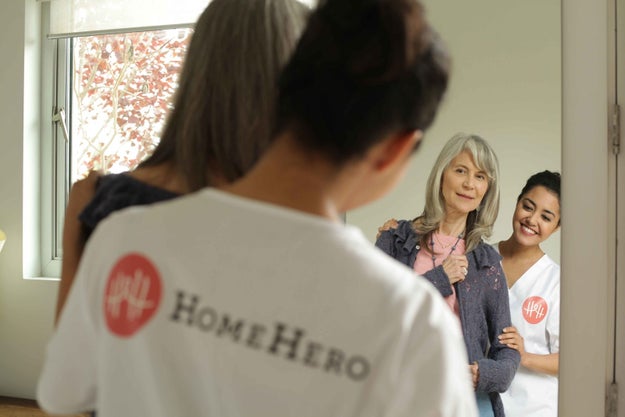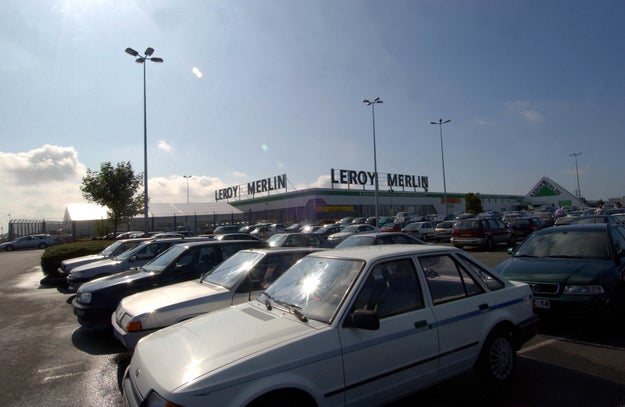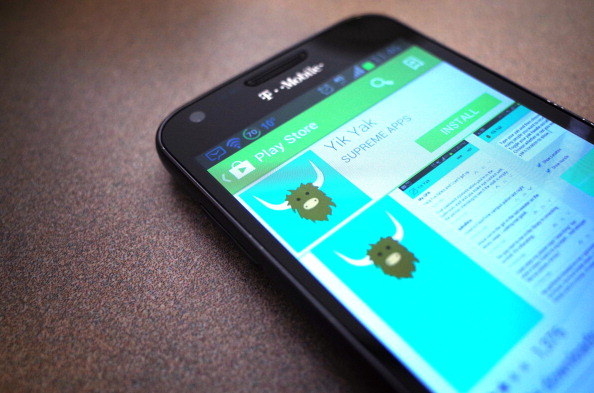
Via giphy.com
With the exception of Taylor Swift, 2017 wasn’t a good year for anyone. But the employees and entrepreneurs at these startups had a particularly rough time. While each company or gadget had its own reason for sunsetting, the following failures tended to result from one of two problems: On-demand services were slow to turn a profit, and hardware turned out to be really hard. But lessons were learned, assets liquidated, and pivots made.
Better luck next year, Silicon Valley!

Via youtube.com
1. Lily Robotics
In a year when many startups went belly up, Lily Robotics set the tone with its January collapse. Back in May 2015, Lily’s product debut video went viral after showing a drone with four propellers that could autonomously follow people as they snowboarded or kayaked, taking off straight from the water or landing in users’ hands. The problem? Most of it was faked. The San Francisco District Attorney’s office filed a civil suit in January and alleged that the company had used GoPros and other professional drones to film their launch video and led viewers to think that the crisp images were from Lily’s flagship device. Lily, which raised more than $15 million in venture capital funding and $34 million in pre-orders, would go on to declare bankruptcy and promised that it would refund customers who had paid in advance. But some people are still waiting.

HomeHero
2. HomeHero
HomeHero, founded in 2013, provided non-medical caregiving to seniors. It was one of a handful of senior care startups, including Honor and HomeTeam, and one of many startups that relied on on-demand labor from independent contractors (also known as 1099 workers) versus on-staff “W-2” employees. But in February, HomeHero shut down after raising $23 million. CEO Kyle Hill blamed a federal ruling that mandated home care workers had to be treated as W-2 employees with benefits — what Hill called “an inferior employment business model.”

AFP / Getty Images
3. Beepi
Tech can disrupt everything, even the used car market! Or at least that was the thinking when investors poured money into a host of startups including Shift, Carvana, Vroom, and Beepi. These online peer-to-peer marketplaces were intended to remove the middlemen and brick-and-mortar costs associated with car dealerships, connecting people within their communities to buy and sell automobiles. The problem is it was an expensive exercise, with Beepi, which was founded in 2013, burning through more than $150 million in investment money (sometimes on boneheaded deals like this one, where it lost $29,500 on the sale of a single car). After failing to sell its assets, it ended all operations in February.

Mandel Ngan / AFP / Getty Images
4. Yik Yak
The Internet can be a fickle thing. One day you’re the hottest social app. The next, you’re dead in the water. That’s what happened to Yik Yak, the anonymous social platform that became popular on middle and high school campuses and was banned in some cases for its role in cyberbullying. None of that mattered to venture capital firms like Sequoia Capital, which dumped more than $70 million into the company after it was founded in 2013. Yik Yak shut down in May following months of falling engagement numbers, and sold some of its assets to the financial technology company Square.

Milkos / Getty Images
5. Maple and Sprig
It wasn’t long ago that on-demand food delivery startups were raising hundreds of millions of dollars from return-hungry investors. But customers seem to be losing their appetites. Maple, which launched in New York in 2015, and Sprig, a San Francisco–based gourmet-meal service that started in 2013, both shut down within weeks of each other in May. One apparent reason: making food from scratch and delivering it, compared to just carrying out orders from established restaurants, is expensive.

6. Hello
Goodbye Hello. In spite of $40 million in funding and a successful Kickstarter campaign, the sleep-tracking device company still found its way into the 2017 startup graveyard. It launched in July 2014 with plenty of fanfare by its founder and CEO James Proud, a former Thiel Fellow. But Hello and its original product, Sense, were plagued by lukewarm reviews and a lack of consumer demand. The beautifully designed orb, which sat on a bedside table and tracked its user’s sleep patterns, sold poorly, forcing Proud to put the company to bed.

Nicholas Kamm / AFP / Getty Images
7. Jawbone
At the height of the wearable electronics craze, Jawbone, the maker of headphones and fitness-tracking bands that was founded in 1999, was valued at a whopping $3 billion. How times have changed. In July, following months of financial struggles and rounds of litigation with rival Fitbit, the startup began liquidating its assets. Cofounder and CEO Hosain Rahman is reportedly pivoting into a new endeavor, Jawbone Health Hub, that would make health-related hardware and offer software services.

Juicero
8. Juicero
Silicon Valley did not deserve the story of Juicero. The former founder of a bankrupt organic chain unveiled a $699 WiFi-connected juice machine in March 2016, raised $134 million from some of the tech industry’s most storied investors, and then promptly shut down after a news outlet determined that its device achieves the exact same end as a pair of human hands. In a year when a president ascended to the White House by railing against coastal elites, Juicero was Silicon Valley schadenfreude made all the more beautiful by founder Doug Evans posting videos from Burning Man as the company shut down in September. More recently, Juicero’s Twitter account was taken over by what seems to be an avid sports fan.
9. Luxe
Finding a parking spot can be a soul-crushing endeavor in a city, especially if that city happens to be San Francisco. Naturally this was the birthplace in 2013 of Luxe, which let you smartphone-summon a blue-jacketed stranger to scooter up and park your car until you needed it. This idea raised $75 million, but it wasn’t enough. It stopped doing door-to-door valet service in the spring and then sold to Volvo in September.
10. Snap’s Spectacles
A year ago, New Yorkers were lining up for blocks to get their hands on a pair of Snap Spectacles. They were video-recording sunglasses, but unlike Google Glass, they were definitely going to be a thing. (Narrator: they weren’t.) As Snap struggled with a lackluster IPO, it reported in November that underwhelming customer interest led it to lose $40 million on the device. The company now has hundreds of thousands of unsold Spectacles.

Doppler Labs
11. Doppler Labs
Doppler Labs cofounder and CEO Noah Kraft seemed to have everything going for him — except for financial viability. With plenty of media appearances and a spot on Forbes’ 30 Under 30 list in 2016, Kraft leveraged the attention to raise more than $50 million for a company that promised to make wireless headphones the could be controlled via smartphone. Unfortunately, the product, Here One, hit development and manufacturing delays and was unable to beat Apple’s AirPods to market, dooming it as a competitor to the electronics powerhouse. "We thought we were the shit," Kraft told Wired recently in announcing his company’s shutdown.
12. AOL Instant Messenger
In 2017 it seemed like there was an announcement every other week that AIM — that hallowed place of emo status updates, BRB away messages, and teenage flirting — would be shutting down forever. On Dec. 15, that finally happened, ending the 20-year-old online communication service that had about 100 million users at its peak in 2001. It was a sad day for these writers, once known on AIM as azninvasion828 and ssmiling88. Pour one out for AIM.

13. Storify
Since 2010, journalists and storytellers used Storify to put tweets, Facebook posts, and other social media content into a nice, neat chronological timeline that told a story. But earlier this month, Storify announced that its own timeline was, in a sense, coming to an end.
from BuzzFeed - Tech https://www.buzzfeed.com/stephaniemlee/here-are-13-tech-startups-and-products-that-flopped-in-2017?utm_term=4ldqpia
No comments:
Post a Comment